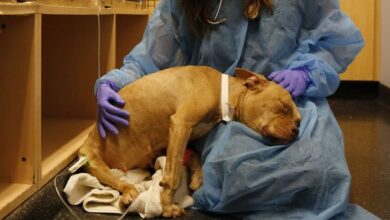
Summary
Vaccination protectspets and communities from serious diseases. Core vaccines are essential for all dogs and cats, while non‑core vaccines are tailored to individual risk. Young animals require a series of early doses, with adult animals needing boosters generally every 1–3 years. Always consult a veterinarian for a personalized schedule based on your pet’s health, lifestyle, and local regulations.
Similar to human vaccinations, pet vaccinations are required. Without the required vaccinations, yourpet will be more prone to disease which can be lethal to both you and your pet. Additionally, prior to boarding a flight with your pet, many nations require vaccinations. Here are some reasons why you must vaccinate your pet and the diseases you can avoid by doing so. In this article, we’re highlighting everything you need to know about puppy vaccination.
What are vaccines and why are they important?
Vaccines are injections that are administered to your pet so that it develops a stronger immune system. They will be immunised to fight against a particular disease if they have taken a vaccine for it. Vaccines will improve the production of antibodies in your pet’s body. So, if the virus/disease enters the body, they can identify and fight it.
If your pet is vaccinated, it reduces their chances of falling sick or lowers the severity of certain diseases. Also, because your pet is coming close to you and your family members, their vaccination is important. Without vaccination, some diseases they can carry pose a risk to humans and can be life-threatening, such as rabies.
Taking a proactive approach to your pet’s health care can help prevent disease, improve their quality of life, and even prolong their life.
Several things can be done when it comes to preventative health care, and as well as avoiding illness, the aim is to ensure your dog or cat remains active, happy, and thrives.

Routine Veterinary Check-Ups
As vital as it is to check your pet over at home regularly, this will never replace a check-up with an experienced vet.
Vets offer specialised services in feline and canine healthcare; their priority is your pet’s wellbeing.
Core vaccines are recommended for all pets, while non-core vaccines are based on lifestyle and exposure risk. Vaccinations are crucial for preventing serious and potentially fatal diseases.

Core Vaccines:
- Dogs:Core vaccines for dogs include those for canine distemper, parvovirus, canine hepatitis, and rabies.
- Cats:Core vaccines for cats include those for feline distemper (panleukopenia), calicivirus, herpesvirus, and rabies.
Non-Core Vaccines:
- Dogs:Non-core vaccines for dogs include Bordetella, leptospirosis, Lyme disease, and canine influenza, depending on the pet’s lifestyle and location.
- Cats:Non-core vaccines for cats include feline leukemia virus, Chlamydophila, and Bordetella.
Vaccination Schedules:
Senior Pets:Older pets may have different vaccination needs, so a veterinarian will assess their health and adjust the schedule accordingly.
Puppies and Kittens:Begin vaccinations at 6-8 weeks of age, with boosters every 2-4 weeks until they are 16 weeks old.
Adult Pets:Adult dogs and cats will require booster shots periodically, with most core vaccines needing boosters every 1-3 years.
Quick Reference
| Stage | Pet Type | Core Vaccines | Non‑Core As Needed |
|---|---|---|---|
| Puppy / Kitten | Dog | DHPP (± coronavirus), Rabies | Bordetella, Lepto, Lyme, etc. |
| Cat | FVRCP, FPV, FHV‑1, Rabies | FeLV, others if at-risk | |
| Adult | Dog | Core series boosters every 1–3 yrs | Rabies per label, non‑core annually |
| Cat | Core boosters every ~3 yrs | Rabies per label, FeLV every 2–3 yrs | |
| All ages | Both | Annual health check | Serology/titer testing optional |
Why Vaccinate?
- Vaccines give pets protection against highly contagious and often fatal diseases
- Safeguard animal and human health—especially with zoonotic diseases like rabies or leptospirosis
- Some facilities (boarding, daycare, training) legally require proof of vaccination
- Regular vet care ensures early detection of health issues and keeps immunity strong.
Guide to Pet Vaccination – FAQs
- Why vaccinate pets?
Vaccines protect pets from serious diseases and prevent the spread of infections. - When should pets get vaccines?
Puppies and kittens start at 6–8 weeks, with boosters as advised by a vet. Adults need regular boosters. - Are vaccines safe?
Most pets have no issues. Mild side effects like soreness or tiredness may occur. - Which vaccines are essential?
Core vaccines protect against deadly diseases (e.g., rabies, parvo, distemper). Non-core depend on lifestyle and location. - Do indoor pets need vaccines?
Yes—many diseases can still spread indoors or through visitors. - How often are boosters needed?
Most are yearly or every 3 years. And follow your vet’s schedule.
Need Veterinary Help?
Have questions about animal health, management, diseases, or treatment? Our professional veterinary team is here to assist you.
Consult Online: Contact Us
Email: professionaldvm129@gmail.com
Visit: www.veterinaryhub.info





